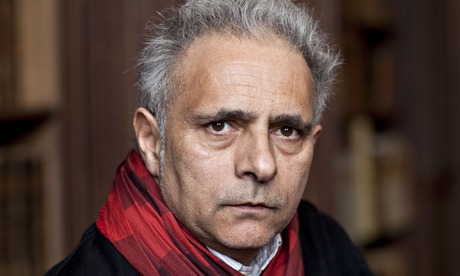http://www.telegraph.co.uk/culture/books/10674887/Creative-writing-courses-are-a-waste-of-time-says-Hanif-Kureishi.html
http://www.theguardian.com/books/2014/mar/04/creative-writing-courses-waste-of-time-hanif-kureishi?commentpage=3
My readers will know, obviously, that I believe strongly in writing as a craft. Were this not the case, the theme of the first two years of Everest by Fog would have been very different. Most of my posts on the craft would have said things like, "Go away!" and "Stop wasting my time!"
I don't think many of you would have read it.
I studied on the Kingston MFA with Scott Bradfield and Paul McAuley. I was advised and encouraged by Stephen Jones, Steve Erickson and Christopher Priest to name but a few. My first novel, Paint the Raven Black, has found representation at a top tier agency. I've fared well since leaving Kingston, and Scott set me on a good road. I went to the MFA reaching out, wishing to speed up a process I was already feverishly engaged with.
It's true that some teachers were obsessed with "voice" and various other subjectivities, but Scott stuck to principles of narrative psychology that can indeed be taught. You can't write symphonies without first learning to play the piano. The very idea that writing should be exempt from such objectivities is elitist and illogical. Iain Banks said in an interview just before his death that authors do a great deal to encourage the mystique surrounding the art. He and I, when we met thanks to my association with Paul McAuley, agreed that accomplished nothing but to distance readers from our work. Once it was a distinction between the average person and the intelligentsia. Now it is sociologically destructive as well as obsolete.
I'll say to Hanif's credit that the learning process and the materials necessary to master the craft of fiction are less obvious than those of other arts. We deal purely with reader psychology. I will add, however, that a true master of the craft not only recognises this, but is capable of imparting their understanding.
Learning the craft is a road we ultimately walk alone, but Scott offered me signposts that catch my eye to this day. I'd be curious to know what, if anything, Hanif teaches, because talent is just a poor word for passion, and a wordsmith, let alone an explorer of the human heart, should know better.
It only takes a little reflection to realise that one can not believe in inherent human equality while still believing in talent. Before we try to produce work that isn't pretentious drivel, we must examine the notion that we're better than our readers. If we aren't pretentious twits, we'll swiftly see its fallacy.
There's some name dropping in this post, I'll admit, but I've done if for a reason. Everyone mentioned here advised me and believed in me. I mention them because they were my heroes, people I wished to count myself among, and when given the opportunity to show them my work and my attitude, they thought something of me, too. If I had the words for how that made me feel, I wouldn't need to tell stories in order to express such vital emotions. I learned not only that I could accomplish my goals given enough effort and time, but that hero worship was unhealthy, because my heroes were only human, just like me.
Hanif won't read this, but I don't mind. As a well-liked alumni of Kingston I will, presuming he doesn't get fired, get to say what I think in person soon enough.
I'll post his smug face here just so I can stick this post on Pintrest.
 There.
There.
No comments:
Post a Comment